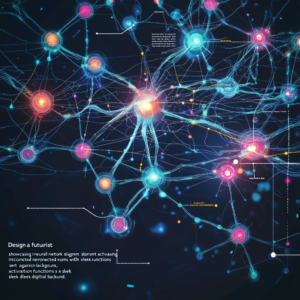
“Reimagining AI: Bridging Indigenous Wisdom and Technology”
In a world teeming with innovation and relentless technological advancement, artificial intelligence (AI) has truly become the centerpiece of modern discourse, not just for tech aficionados, but also for those passionately advocating for social equity. In the latest twist of this tale, we are witnessing a novel research program—orchestrated under the evocative title “Abundant Intelligences: Expanding Artificial Intelligence through Indigenous Knowledge Systems”—seeking to shake the very foundations of how AI is perceived and developed. This is no mere footnote in the tech world; it’s a full-on revolution, folks!
Let’s pull back the curtain and peek inside this innovative initiative spearheaded by Concordia University, propelled by a staggering $23-million grant from Canada's New Frontiers in Research Fund. We've got a diverse cast of 37 co-investigators and collaborators from no less than eight universities along with 12 Indigenous community organizations across Canada, the United States, and New Zealand—this sounds like the dream team of academic collaboration. Finally, we see a concerted effort to disrupt the painfully one-dimensional lens through which AI has traditionally been viewed. Isn't it about time?
So, what’s the big picture here? The lifeblood of the Abundant Intelligences initiative flows from the integration of Indigenous knowledge systems into AI research and development. You see, this isn’t merely some academic jargon tossed around to impress the crowd; it’s a profound collaboration aimed at creating “pods,” localized hubs where indigenous knowledge-holders mingle with researchers, engineers, artists, and social scientists. Picture vibrant community gatherings, where wisdom meets innovation! It’s like a cultural renaissance combined with cutting-edge tech.
Now, why the urgency to decolonize AI? The folks behind this program aim to dig deep into the colonial pathways that have shaped current AI research—let's call them the “scarcity mindsets.” Their goal is not merely to question the status quo but to actively open the floodgates to multiple interpretations of intelligence. Imagine a future where AI isn't just about crunching numbers and spitting out analytics but about understanding diverse ways of thinking. It’s a breath of fresh air, and trust me, we need it.
And while we're on the topic of fresh approaches, let's discuss ethical data use. Conventional AI research often leans on the crutch of massive datasets, plucked from the wild internet jungle, often mishandled and misrepresented. Here, however, the Abundant Intelligences program promises to work with data sourced directly from Indigenous communities, treating the information with the respect it deserves—even if it means dealing with smaller datasets. Think of the charm in handpicked, meaningful data, particularly for smaller languages or even non-human actors. Yes, you read that right—AI could one day engage with “non-human actors.” Imagine giving a voice to the trees!
Community engagement is another jewel in the crown of this groundbreaking initiative. The beauty lies in its commitment to grounded, community-based research. The problems addressed here are pressing—environmental sustainability, public health, the preservation of Indigenous languages—the list goes on. It’s not just talk; it’s about doing meaningful work that resonates with the people it’s meant to serve.
As we look ahead, several leading institutions are paving the way for this transformative journey. At the heart of it all is Concordia University, with key figures like Jason Edward Lewis—the principal investigator of this grant—acting as the orchestra conductor of this ambitious endeavor. Swinging over to the University of Hawai'i—West Oahu, a hotspot brimming with Indigenous technological talent, has become an essential part of this tapestry. And who could overlook Bard College’s Wihanble S’a Center, which has grand ambitions of establishing ethical AI frameworks that are deeply entwined with Indigenous methodologies? It’s a glorious mash-up of tradition and modernity!
What can we expect from the outcomes of the Abundant Intelligences program? Well, for starters, it’s all about sovereignty and capacity-building. The program serves ambitions of not just providing technological frameworks but also empowering Indigenous communities to take charge of their own computational landscapes—no more backseat driving! And here’s where it gets exciting: this is set to benefit not only Indigenous communities but society at large, fostering AI technologies that are just as inclusive as they are advanced. Picture a future where everyone has a seat at the table—now that’s the kind of dinner party I want to attend!
So here we are, at a crossroads where the voices of many are finally being welcomed into the mix. The Abundant Intelligences initiative is more than just a research program—it stands as a declaration that AI can and should evolve into something ethical, sustainable, and profoundly beneficial for all. As we charge full steam ahead, it’s crucial to remember that the future of AI is being crafted today—who truly wants to miss out on this discussion?
Want to stay up to date with the latest news on innovative AI research and other technological advancements? Subscribe to our Telegram channel: @channel_neirotoken
Remember, this isn’t just about technology; it’s about humanity itself. Join the conversation!

